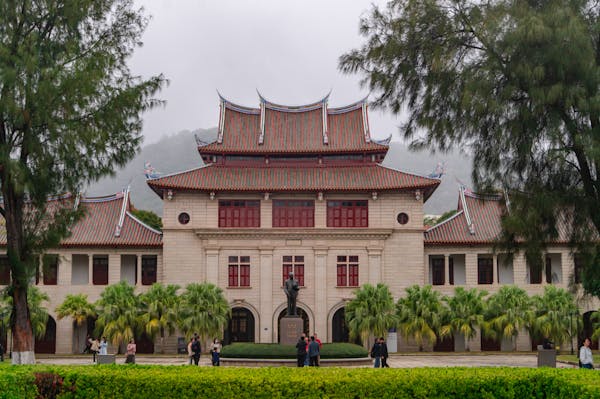When evaluating higher education across Asia, a compelling trend has emerged over the past decade: Hong Kong universities consistently outrank their counterparts in Mainland China. This development surprises many, especially given China’s rapid rise as a global economic and academic powerhouse. So why do Hong Kong universities outrank Mainland China? This in-depth analysis will explore the multiple dimensions behind this phenomenon, ranging from governance models and academic freedom to international collaboration and student outcomes.
Historical Context and Evolution of Higher Education in Hong Kong
To understand the current superiority of Hong Kong’s universities, we must first consider the historical backdrop. As a former British colony, Hong Kong inherited an educational system modeled after the United Kingdom. This legacy included rigorous quality assurance frameworks, English-language instruction, and a strong emphasis on academic independence. After the 1997 handover to China, Hong Kong retained significant autonomy under the “One Country, Two Systems” principle, including in education.
This framework allowed Hong Kong institutions to flourish without the restrictions typically associated with centralized governance, creating an academic environment conducive to critical thinking, research innovation, and global engagement.
Governance and Academic Freedom
One of the most critical factors in explaining why Hong Kong universities outrank Mainland China is the governance structure. Academic institutions in Hong Kong enjoy a high degree of autonomy. University leadership is often selected based on merit rather than political allegiance, and faculty members can pursue research without strict ideological constraints.
In contrast, universities in Mainland China are heavily influenced by the state. The Chinese Communist Party maintains a presence in university administration and enforces ideological guidelines that can limit academic freedom. This politicization can stifle creativity, discourage open discourse, and deter international collaborations, all of which are vital for global academic rankings.
International Collaboration and Global Reputation
Hong Kong’s geographic and cultural positioning as a bridge between East and West has made it a hub for international academic collaboration. Universities such as the University of Hong Kong (HKU), the Hong Kong University of Science and Technology (HKUST), and the Chinese University of Hong Kong (CUHK) have established strong global networks. These institutions frequently collaborate with top-tier universities in the United States, Europe, and Asia.
This internationalization enhances the quality of research, increases the visibility of Hong Kong institutions in global academic circles, and attracts high-caliber faculty and students. Rankings such as QS and THE (Times Higher Education) heavily weigh international outlook and reputation, providing a significant boost to Hong Kong institutions.
Research Output and Funding
Research excellence is another area where Hong Kong outpaces Mainland China. Although Chinese universities receive massive state funding, much of it is tied to government priorities and metrics. This can lead to quantity-over-quality scenarios, where the focus is on publishing in bulk rather than producing groundbreaking work.
Hong Kong universities, while smaller in scale, often emphasize quality. Funding mechanisms encourage impactful research, interdisciplinary projects, and international collaboration. Moreover, the peer-review process for funding in Hong Kong is generally more transparent and competitive, leading to more merit-based outcomes.

Table: Comparative Overview of Key Metrics (Hong Kong vs. Mainland China Universities)
| Metric | Hong Kong Universities | Mainland China Universities |
|---|---|---|
| Academic Freedom | High | Moderate to Low |
| Governance | Autonomous | State-controlled |
| Language of Instruction | Primarily English | Primarily Mandarin |
| Research Funding Allocation | Transparent and merit-based | Politically influenced |
| International Collaboration | Extensive | Growing but restricted |
| Global Rankings | Frequently in Top 100 | Few in Top 100 |
| Faculty Recruitment | Global talent pool | Mostly domestic with some international |
| Curriculum Design | Flexible and liberal | Standardized and regulated |
Student Outcomes and Employability
Employability of graduates is a critical metric that impacts university rankings and reputation. Hong Kong graduates often fare better in the global job market due to their proficiency in English, international exposure, and practical-oriented curricula. Internship opportunities and strong industry ties in Hong Kong further bolster graduate outcomes.
Mainland Chinese graduates, although increasingly competitive, often face language barriers and limited global mobility due to visa restrictions and less internationalized curricula. This gap is narrowing, but it still plays a role in why Hong Kong universities outrank Mainland China in various global indices.
Political Stability and Global Perception
While Hong Kong has experienced political unrest in recent years, its educational institutions have largely maintained a degree of stability and integrity. Global academic communities still view Hong Kong as a relatively free and open environment for learning and research.
Conversely, the political climate in Mainland China, including internet censorship and government surveillance, can deter international students and scholars. These factors directly influence perceptions and, consequently, global rankings.
Language and Cultural Accessibility
English-language instruction in Hong Kong provides a significant advantage. It allows for easier integration into global academia and increases accessibility for international students. Most Mainland Chinese universities teach in Mandarin, which can be a barrier for non-Chinese speakers.
This linguistic openness enhances student diversity and enriches the academic environment, further contributing to why Hong Kong universities outrank Mainland China in the eyes of global evaluators.
Challenges Facing Hong Kong Universities
Despite their advantages, Hong Kong universities are not without challenges. Recent political developments have raised concerns about the erosion of academic freedom. There is also increasing pressure from Beijing to align more closely with Mainland policies.
Additionally, rising living costs and limited space pose logistical challenges for students and faculty. Maintaining the delicate balance between autonomy and integration will be crucial for the future of Hong Kong’s academic sector.
The Future Outlook: Competition or Convergence?
As Mainland China continues to invest in higher education, the gap is expected to narrow. Initiatives like the Double First-Class University Plan aim to elevate Chinese universities to world-class status. Some universities in China, such as Tsinghua and Peking, are already climbing the ranks.
However, unless systemic issues such as academic freedom and political interference are addressed, Hong Kong will likely continue to maintain its edge, albeit with increasing competition.
Conclusion
So, why do Hong Kong universities outrank Mainland China? The answer lies in a combination of historical legacy, academic freedom, international collaboration, and student outcomes. While Mainland China has made tremendous strides in expanding and improving its higher education sector, systemic constraints still limit its global competitiveness.
Hong Kong’s universities have successfully positioned themselves as global academic leaders, leveraging their unique blend of Eastern roots and Western influence. As long as they can preserve their core values and adapt to evolving geopolitical realities, they are poised to remain ahead in the global academic race.
Ultimately, the superiority of Hong Kong’s higher education system underscores the importance of autonomy, openness, and quality in building world-class institutions. These are the pillars upon which lasting academic excellence is built.
